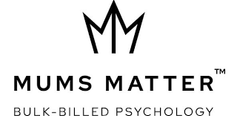Fun Ways to Teach Kids About Sustainability and Take Climate Action
Hear from Sally Giblin, award-winning co-founder of ‘Be The Future’, podcast co-host, environmentalist, writer, and parent. Her purpose is to inspire others to take action on our climate and biodiversity crisis.
Tell us a bit more about ‘Be The Future’ and what you do
Be The Future creates innovative, playful climate solutions experiences for local councils, early learning centres and primary schools, including:
- Little Future Makers (2-5 years): Delve into themed "invitations to play" and take-home solutions featuring items crafted from nature, reloved, upcycled, recycled, or sustainably made materials.
- Growing Future Makers (5-12 years): Experience awe-inspiring storytelling and immersive activities designed to empower children to actively participate in embedding community climate solutions.

How do you believe parents can introduce sustainability and climate action to their young children in a fun and engaging way?
One of the best ways you can introduce sustainability and climate is through PLAY. Consider incorporating these simple yet impactful activities into your family’s daily life:
- Opt for preloved toys or clothes to reduce waste and promote circularity
- Encourage outdoor play to connect with nature
- Engage in planting projects with your kids
- Prioritise experiences over things, fostering a mindset of mindful consumption
- Bring nature indoors through plants and engaging in nature-inspired crafting activities
Can you share some examples of interactive and enjoyable activities or games parents can incorporate into their daily routines to teach children about environmental conservation and sustainability?
Sure! Here’s are a few ideas....
🌳 Nature scavenger hunt - Be a nature detective and seek out fallen nature like a Sherlock Holmes of the forest.
🌳 Indoor herb or vegetable garden - Grow some greens on a windowsill or balcony. Start with something super easy and quick like microgreens.
🌳 Recycled art project - Think trash-turned-treasure. Collect everyday items like cardboard boxes, bottle lids and toilet paper rolls. Picasso, move aside!
In your experience, what are some effective strategies for instilling a sense of responsibility and empowerment in children to take climate action, even at a young age?
My top 3 strategies would be:
- Reading inspiring stories with your children. Stories about taking care of our only home (such as The Lorax), and stories about kids creating change (such as Old Enough to Save the Planet).
- Enjoying experiences over things (especially ones outdoors in nature!). Teaching your children about the magic of enjoying experiences over consuming things is incredibly powerful.
- Learning about climate action through play. From nature crafts to preloved toys, recycle crafts to nature play, there are so many ways to instil a love of our planet – and a desire to protect it.
How can parents navigate the balance between teaching children about the urgency of climate change while also ensuring they feel hopeful and motivated to make a positive difference?
It's important to acknowledge your children’s feelings as they learn more about climate change. It’s completely natural to feel overwhelmed, scared, angry. A rollercoaster of BIG emotions.
But when 60% of young people say they feel very worried or extremely worried about #climatechange, it’s critical to help to build their sense of hope for a better future.
Here are 3 things you can tell your children to help them feel hopeful and motivated to make a positive difference:
🌳 We took our biggest step to protect our planet because of one woman’s ‘stubborn optimism’. Christiana Figueres led the 2015 Paris Agreement to its success (197 countries!) by being a beacon of possibility.
🌳 Many people – all over the world, across generations – are working on creating a better future. We know what’s causing our climate and biodiversity crisis. And we know how to solve it. More people are making change every single day.
🌳 Finding your way to be part of making change helps. A lot! Choose to make change where you can. Perhaps you can start eating more plants as a family. Perhaps your child can start an eco-project at school with other children or teachers. Perhaps your child can draw a picture or write a letter to a local leader who can change things.
What advice do you have for parents who may feel overwhelmed or unsure about how to approach conversations about climate change and sustainability with their young children?
So many parents tell us they’re concerned they’ll terrify their kids if they talk to them about climate change. And that it will layer more anxiety on top of existing challenges and injustices. But the thing is, climate change is real and it’s happening now. At some point, your kids will hear something at school or see something in the media or experience something first-hand. So, you can’t avoid it forever (much as you might like to!).
What you CAN DO, is starting to prepare for those conversations, so you can be ready for when those moments happen and choose how you speak to your kids about climate change - at different ages.
Can you suggest any resources, books, or apps that parents can utilise to further support their children's learning about sustainability and environmental stewardship?
Two of my favourite resources are:
“How to Talk to Your Kids About Climate Change, Turning Angst into Action" - Harriet Shugarman
“Parenting in a Changing Climate: Tools for Cultivating Resilience, Taking Action, and Practicing Hope in the Face of Climate Change” - Elizabeth Bechard
How important do you believe it is for parents to model sustainable behaviours and practices in front of their children, and do you have any practical tips for integrating sustainability into family routines?
Role modelling eco behaviour is incredibly impactful. Gradually making small and imperfect eco changes is one of the best things you can do with your children. Because tiny humans are the world’s best copycats, right?
It can be as simple as choosing to source or rent something preloved rather than new. Cooking plant-based meal instead of meat. Packing a nude school lunchbox rather than plastic packaged snacks.
Can you share any success stories or anecdotes from your work where you've seen children truly embrace sustainability and take meaningful climate action in their communities?
Absolutely.
Felix, from Germany, created Plant for the Planet at age 9, which gets school children around the world to plant trees. Within a few years, over one million trees had been planted across almost 100 countries.
Nikita, a 12-year-old from Ukraine, was responsible for turning his school’s food waste into useable compost for his city. Many schools across the country then adopted the idea.
Amy and Ella, from the UK, are two sisters eradicating single-use plastic through their charity Kids Against Plastic. They’ve influenced many schools, councils and businesses to reduce plastic.
Finally, what are 3 ways parents can learn more about and actively engage with ‘Be the Future”?
Follow us on Instagram
Listen to the Hope. Act. Thrive. Podcast
Book one of our playful, interactive experiences

Written by Kathrin Baumann, founder of Little Renters, and Sally Giblin, climate activist and co-founder of Be The Future.
Apr 17, 2024





